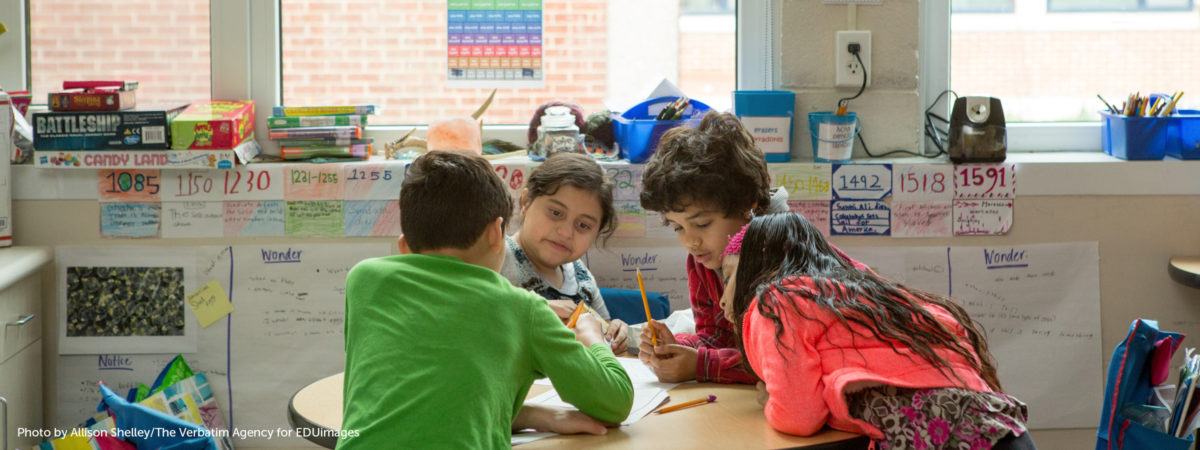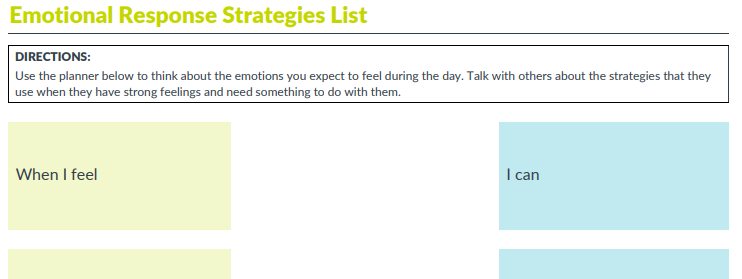
SEL competencies can promote greater understanding of different cultures and power dynamics, and support students and adults in building relationships and interacting with others across diverse backgrounds. In this way, SEL competencies can be leveraged to develop justice-oriented, global citizens, and nurture inclusive school and district communities.
Social-emotional learning is a vital part of human development and a critical skill to develop in everyone. Skills such as collaboration, trust, empathy, and self-evaluation are some of these critical skills that are developed when a specific focus on SEL is present in classrooms. Building empathy and self-evaluation in students is more important than in previous generations of classrooms. Online learning, with all the benefits it brings students, has pitfalls too. About 15 percent of students between the ages of 12-18 are being bullied online. SEL in schools has shown to be an effective component in comprehensive bullying prevention interventions and reduces all types of bullying, not just online, by 51 percent1.
Two major competencies in the CASEL SEL framework are self-awareness (understanding one’s own emotions, thoughts, and values) and self-management (ability to manage one’s own emotions, thoughts, and behaviors). How can schools, parents, and teachers support each student with managing their stress? Two strategies are especially critical for emotion regulation, particularly during these unprecedented times:
Pause and ask yourself, “How am I feeling?” Label the emotion (i.e., anxious, furious, worried, concerned, etc.). If you are unable to identify the emotion, consider referencing Dr. Marc Brackett’s Mood Meter to build your emotional vocabulary.
Then create a list of strategies to help self-regulate under-desired emotions. For instance, Turnaround for Children’s Emotional Response Strategy List instructs one to use a planner to think about the emotions you expect to feel throughout the day by creating a T-Chart with two columns like the one below:

By creating a list of undesirable and expected emotions paired with strategies, it inadvertently restores our energy to a state of calm with the use of emotion regulation strategies.
Research has shown that focusing on the breath can have positive effects on our body and mind. Try these breathing techniques to support stress reduction:
Consider focusing parts of your day or class period on SEL competencies. Take 10 minutes once or twice a week to focus specifically on building community, deepening relationships, strengthening trust and social awareness, demonstrating empathy, and fostering mutual respect for the people in your school, classroom, or community. Leverage a protocol like the Rose, Thorn, Bud activity to help generate conversation and reflect on what is happening in the classroom.
“With all of the concerns in the world right now, it is extremely important to allow for a focus on social-emotional learning,” said Brendan Walmer, the school’s Verizon Innovative Learning Schools coach. “Teachers have been granted the freedom to allow that learning to be a focus of their day as needed, because once the students’ emotional states can be regulated better, their academic learning can improve at a greater rate.”
Schools across the world are looking for the best ways to support kids in all areas of their lives. The primary goal is academics, and before that goal is achieved many foundational components of a child must be bolstered. Alongside curriculum, nutrition, and connectivity, educators need to support students’ social-emotional development.
Learn more about the Verizon Innovative Learning Schools initiative at verizon.digitalpromise.org.
Brian H. Smith & Sabina Low (2013) The Role of Social-Emotional Learning In Bullying Prevention Efforts, Theory Into Practice, 52:4, 280-287, DOI: 10.1080/00405841.2013.829731